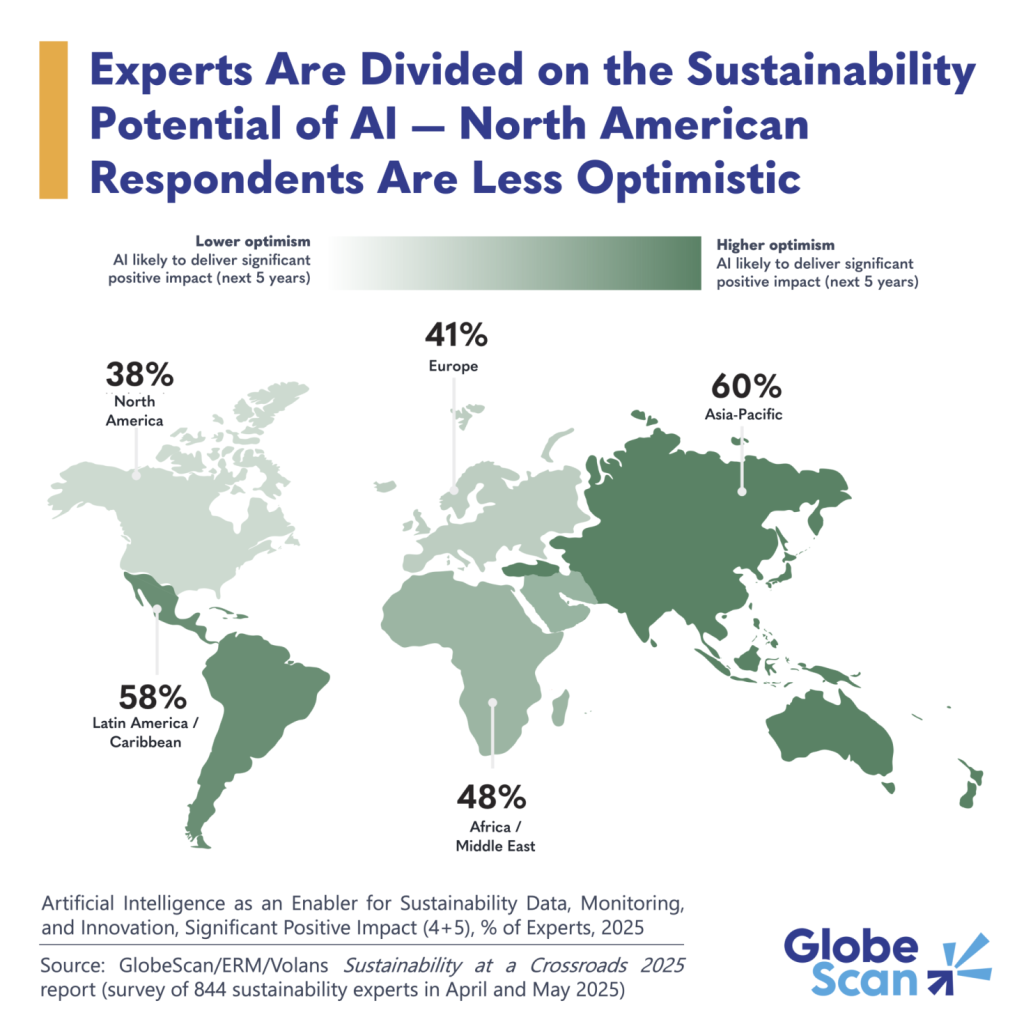In many industries, artificial intelligence is being hailed at a game changer. But a recent survey of sustainability professionals shows enthusiasm for the potential of AI to aid in positive sustainable outcomes isn’t exactly winning.
Trellis data partner GlobeScan, in conjunction with ERM and Volans, found sharp regional divides in attitudes toward AI and sustainability. While 60 percent of experts in the Asia-Pacific region and 58 percent in Latin America and the Caribbean believe AI can positively impact sustainability over the next five years, only 48 percent in Africa and the Middle East, 41 percent in Europe and 38 percent in North America share that optimism.
In a similar pattern, sustainability experts in the Asia-Pacific region (80 percent) and Latin America and the Caribbean (72 percent) also express stronger enthusiasm for R&D and technology innovation in general as a lever for sustainability. North American (68 percent) and European experts (68 percent), while also very optimistic, feel more cautious about its potential to drive sustainability progress in the short term. Experts based in Africa and the Middle East are even less enthusiastic (64 percent).

What this means
While AI is increasingly recognized as a transformative enabler for sustainability, these findings suggest that its adoption and perceived value are strongly shaped by regional context and societal attitudes.
The Asia-Pacific region’s strong optimism may reflect a combination of factors, such as a demonstrated appetite for digital transformation in many fast-growing economies, national strategies focused on AI development (such as those in China, Singapore and South Korea) and a high level of public and private investment in tech-driven solutions.
The skepticism in North America (followed by Europe) is especially notable given the region’s role as a global hub for AI development. Despite leading in innovation, many North American experts remain wary of AI’s sustainability impact, reflecting concerns around governance, privacy and environmental costs. This underscores the need for leading AI and tech companies to help build a social contract that fosters trust, ensures accountability and aligns AI advances with broader societal expectations.
Based on a survey of 844 sustainability practitioners across 72 countries conducted April-May 2025.
The post Will AI improve sustainability? Experts are divided appeared first on Trellis.


